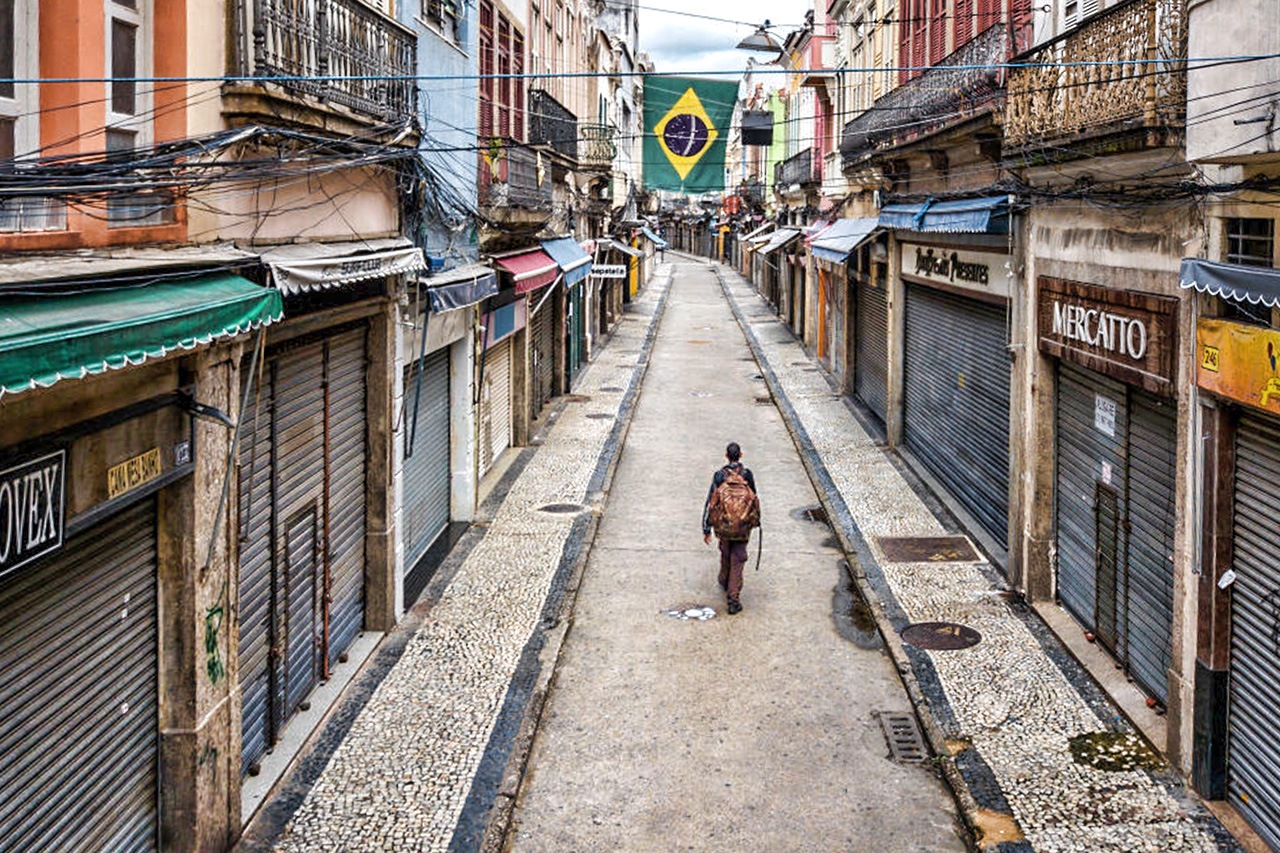RIO DE JANEIRO, BRAZIL – Going back to normal is not enough. An immobilized, inefficient state caught up in pressure groups will be unable to provide answers to the long-term damages of the Covid-19 pandemic to public accounts, the labor market, and the productive sectors. The way out is not to increase spending, but instead to ensure that resources are well spent, and that revenue collection does not overburden the most impoverished.

These are the core arguments of a proposed “post-Pandemic agenda,” the first part of which was published yesterday by economists Marcos Lisboa, Marcos Mendes, Laura Muller Machado, Ricardo Paes de Barros, and Vinicius Botelho.
In order to sidestep the polarization between so-called “developers” and “liberals”, economic theorists with far different views on the state’s size and role in the economy, the authors propose a post-pandemic agenda focused on increasing the effectiveness of public policies and confronting Brazil’s chronic problems.
Marcos Lisboa, president of INSPER (a higher education institution based in São Paulo) and state Secretary of Economic Policy from 2003 to 2005, at the start of former President Luiz Inácio Lula da Silva’s government, states that he decided to coordinate the drafting of the document when he observed that the debate on the economic response to the pandemic was focused on increasing spending. “The discussion was failing to address the main challenge, which is the state’s difficulty in effectively conducting both collection and public spending.”
The economists’ text alerts that the country has become “fragile” in the pandemic. “Although it has become fashionable to talk about increasing spending and public policies, Brazil is not in a position to do so.”
“We are walking on thin ice and with a high risk of losing control of our public debt, which would leave us with decades of high inflation, exchange rate instability, and stagnation of economic growth. By wanting to increase public spending to help the poorest, we could hurt them by exposing them to unemployment and lack of opportunities to improve their quality of life.
Implementation
Although reform suggestions can be interpreted as a government agenda, Lisboa states that they were not drawn up with any politician in mind, and that in theory they can be adopted by any school of ideology. “It will greatly hinge on whether (the politician) is actually committed to improving public policies or to the interests of organized corporations,” the economist says. “Our role is to provide the data and evidence. How to implement it is a matter of politics.”
One aspect emphasized in the proposed post-Pandemic agenda is the need to change the focus of discussions among different schools of economists. The document states that the economic debate in Brazil “has been lost in controversy that ignores our deepest issues”.
“The dispute typically opposes developers, who defend the need for state intervention to promote economic growth, and liberals, who criticize the excessive size of public power and its failed interventions. (…) However, this debate ignores the importance of properly designing public policy and its instruments, so that they are effective and lead to the intended goals.”
Topics
The first part of the proposed agenda analyzes “quality of spending and taxation”, and has chapters dedicated to topics such as low growth, high public spending, low learning, inequality, protection of low-income people, productive inclusion, and assistance to states and municipalities.
The work includes data showing that, compared to other emerging countries, Brazil allocates more resources and achieves fewer positive results – for instance, in the education and poverty-reduction domains.
In dealing with the tax system, economists propose changes to make it “fairer to society, more neutral to investments and less detrimental to the business environment”. In their view, tax collection distortions contribute to increasing social inequalities. “In Brazil, we are not only inefficient in allocating public spending, but also in the way we tax the wealthy.”
The work criticizes selective tax collection policies, with different rates depending on the consumer products on which they are levied. “This arrangement does not look at the buyer, but rather at the product purchased, that is, it does not matter whether the person acquiring the essential product is someone of high or low income. In practice, it causes the state to give up much more than is necessary to benefit those in need.”
Another aspect criticized is the fact that, in Brazil, taxes are more focused on companies than on individuals. “When taxing profit is established, it is impossible to differentiate who and by how much each partner became wealthier. By adopting a mixed system, levying a part in advance from the legal entity and another part after profit distribution, a proportional taxation would be achieved.”

Minimum income
For economist Marcos Lisboa, Brazil may ultimately hurt the poorest if social policies lead to an increase in the tax burden. “This way the country grows less, creates less jobs, and becomes poorer,” he said in an interview. Below are the main passages.
Q: Of the changes proposed in the document, which ones would face the greatest resistance? And where would they come from?
A: There is a lot of resistance. This distorted system we have both in spending and in collection is the result of small interest groups that benefit from it. For instance, System S (formed by SESC, SESI, and SENAI) is a compulsory contribution that is directed to private institutions. It should be optional. Another example: income taxation depends on the type of company, not on personal income.
If I am a pensioner from a pension fund that has invested in large companies, my retirement comes from a taxed profit of 34 percent. If I am in a Simples company, with a presumed profit taxation regime, I will pay only about ten percent income tax, even if I make R$1 million (US$200,000) a year.
The contribution rate is determined based on the companies’ income, not the owner’s, and this creates countless distortions. This is treating equal people differently and ensuring small privileges for several groups. Each of these groups is resisting a republican reform that deals with equals as equals.
Q: In several countries, the crisis caused by the pandemic has ignited the debate on the implementation of a universal basic income for citizens, for instance. In Brazil, would there be any way to do this?
A: In 2003, the Ministry of Finance proposed unifying income transfer programs already in place and focusing them on the poorer families. This sparked much criticism from the left-wing, which ultimately became the Bolsa Família (Family Grant). I think this debate should be brought back.
Another discussion is whether it would be better to transfer income to everyone, be they poor or rich, and raise taxes a little for the wealthy. There are some problems with this alternative design. Tax collection has an impact on social welfare and causes distortions in the economy. For every Real collected there is a cost to the country in terms of productivity, growth, and income.
Another problem is the fact that our tax system is fraught with distortions. To increase the tax burden without solving these distortions means to expand the negative impacts of the tax policy.
Q: The data on education set out in the document show that Brazil, proportionally, is among the countries that spend the most on education, but underperforms compared to those that invest less. Why?
A: Brazil has greatly increased spending on education, but learning indicators have not improved in high school. We are not dealing with management problems. And there are many successful experiences in Brazil, but they have all gone through changes in management. This is a very difficult debate in Brazil.
Source: Estadão Conteúdo

